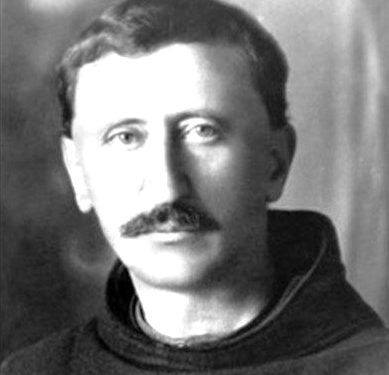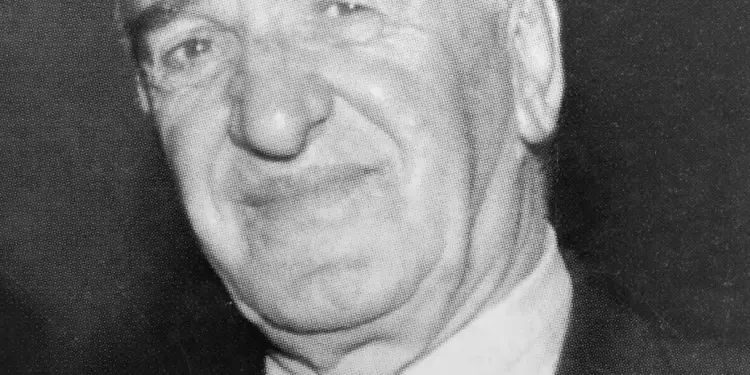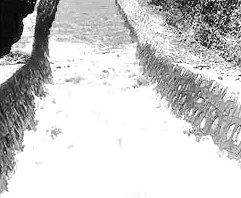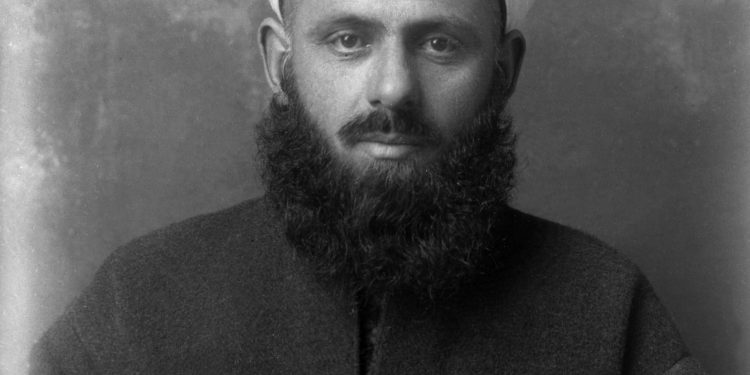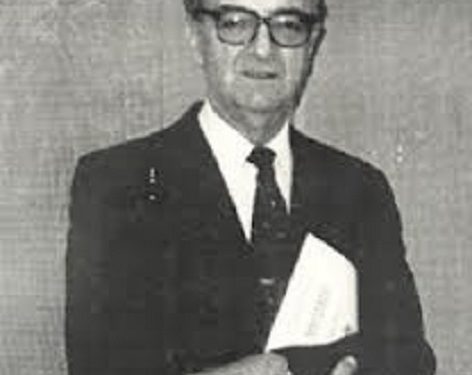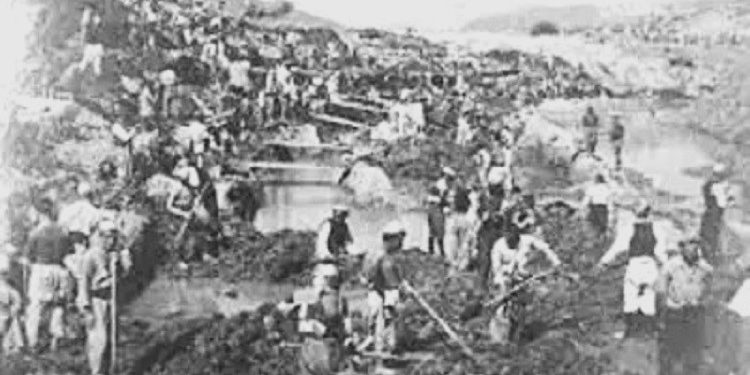By Ahmet Bushati
Part fifty-three
Memorie.al/ After the flag was altered in 1944 with the addition of the communist star, Shkodra transformed into a center of resistance against the regime, paying a high price for its tradition of freedom. By April 1945, high school students, already feeling betrayed by the promises of the war, gathered to oppose the new terror that imprisoned and killed innocent people. Communism turned Kosovo into a province of Yugoslavia, while Shkodra was punished for its “historical crime”- its defiance against invaders. The “Postriba Movement” became a tool to suppress all dissent, plunging the city into an unprecedented spiral of suffering: imprisonments, executions, and the destruction of families. The high school students, alongside citizens, became symbols of resistance, while some “young communists” turned into tools of the State Security, leading to expulsions, imprisonments, and internments.
Four times, Shkodra rose in armed rebellion, but history forgot these battles. This book is written to remember the countless prisoners, the tortured, the killed, and the parents who suffered in silence. It is a warning against dictatorship and a plea for future generations not to forget the sacrifices made for freedom.
Continued from the previous issue
In the Footsteps of a Diary
After much resistance, I was forced to accept an English rubber raincoat in very good condition, a raincoat that he had used very little during his escape. With great insistence, he also gave me a military jacket with a full-fur leather lining, which would keep me alive during the next four winters in the camps, as well as a pair of new woolen socks, which he would tell me I could also use as gloves.
We set off never to return to that prison, having taken with us memories of good people and also having each left – as in a pantheon of honor – his own mark. Who could deserve more respect than some brave, courageous and courageous men who were being allowed there, who continued to pay with great dignity for their pure Albanian nobility, and a manhood and pride that was reflected in their very restrained attitude, in every case?
In that prison, where until then much human pain had been recorded and where the most touching stories had been heard, among others, we were also allowing some infirm and somewhat injured old men, such as the flag-bearer of Gimaj-Shala, Zef Avdi Kola, whom the Italians, after they had conquered Albania, had interned in Ventotene, and here in the prison of Shkodra, if he were not allowed to keep catfish, – an inconceivable thing for a mountain man – he would make it so that when Zef Avdi Kola’s men came to meet him, he would come out to them with his jaws wrapped in a handkerchief out of shame.
Also wrapped in a scarf for his lack of a beard was another old man, Hafiz Musa Dërguti, whose face had been bloodied by a policeman some time ago when he had poured the water of “ablution” on him in the crowd, and who, when he was in Sigurim, had a roommate say to him: “They want me to talk about the priest, they want to divide us, and tomorrow they will tell me that the priests were shot, with the testimonies of the imams. I told them: do whatever you want, because I will never do that job”!
We were also allowing in that prison the brave and courageous priest from Kosovo, Father Palë Doda, who had once saved the life of Ahmet Zogu in Rubik from the Austrians who were pursuing him to kill him, in which case Father Pal, Colonel Ahmet Zogu, had put on his velodrome and sent him as a priest outside the province, to remain forever, one of his most respected and beloved friends when he became King.
Among other things, there in prison Father Pal had told that when once he happened to be in the King’s palace for a celebration, inside a large hall where dancing was taking place, he had addressed the King with these words: “Your Majesty, we need to buy a building for a school, but we have no money.” Only four or five days had passed when a check for five hundred gold napoleons arrived in Shkodra with the inscription: “Mother Mary, to the Stigmatine Sisters”!
Father Paul, in violation of religious orders in the case of the sin of suicide, to escape the torment of the tortures inflicted by the communist interrogators, had thrown himself from the window of an upper floor, but nevertheless, he had escaped with his life. He had been sentenced to death once and then pardoned. After being in a detention cell with Sami Repishti, he had once said: “I have a mission more than the others, because I have to turn on the light wherever it is extinguished”.
And how many others, who continued to be paid there for their patriotism, bravery, loyalty, or intellectualism.
We would be in the camp when we heard that Father Paul had died in the sickroom and that his eyes, not wanting to die, had eaten thousands in the dungeon. We would also hear that, as in the room for the sick with tuberculosis, Ndue Fusha, Rexhep Bërdica and Nush Simoni had died one after the other. Several others had also died, generally from the mountains and other districts, whom I had not known.
The camp beyond Peqin
The camp where we were sent this time was located three or four kilometers, before entering the city of Peqin, by the railway line. The passenger train that passed by Elbasan, which was regularly followed by the prisoners, would be called by them “harap”, and it would be the one that the prisoners would orient themselves regarding the time, when they knew that it would pass by at a time just before lunch. – “The harap has arrived”, they would say as if with joy to the prisoners, as soon as it appeared somewhere far away, or they would ask one another; “Has the harap passed”? – when they did not know what time it should be.
The time when I was in this camp, would mark for me three and a half years of prison, out of the seven that I had been sentenced to, and the third camp, out of the fourteen that I would register in total. Regarding the camps, very little remains to be described, since they were generally, with the exception of Beden, similar to each other, both in terms of treatment by the command and the suffering of the prisoners, who would constantly be forced to perform large work rates and, as always, suffer hunger, which would continue to work “miracles”.
In this camp, most of the ordinary prisoners would be people who had been employed in various sectors of the economy, such as salesmen, warehousemen, drivers, accountants and even auditors, who had abused their duties, out of the need to help their families and then justify their negative actions to us, with the reasoning that; “they had been taken by a state, which in turn had robbed them of everything”. Within this category of prisoners, there were some who passed through prison and camps with the dignity and honor of regular citizens.
Without straying from the topic below, I would like to single out for the sake of good, for example, Haki Tuzi and the younger Gjovalin Preka, two of our wonderful friends, connected in some way to the “student movement” from the beginning, through some of their student friends. Hakiu and Gjovalini, although they had been convicted of irregularities at work, that is, for ordinary crimes, spiritually and in terms of attitude, they would be a hundred times more political than ordinary, and communism itself, for its part, would treat them as such: Hakiu, along with his life, would kill early on a remarkable talent he had in writing, while Gjovalini would be forced to one day be torn apart alive by the propeller of a motorboat, while he, trying to escape across the Buna River, was going down the steep side of its head, while several other ordinary people, who, from their first encounter with the difficulties of the camp, had given the worst evidence of impatience, who, after making shameful compromises with their consciences, for a ration of bread, to give the most valuable things they had.
There were also others, who were seen for hours and hours around the kitchen kettles, without missing even the last few, who would steal from their comrades, in complete contrast to the attitude of political prisoners, or even ordinary ones, as in the case of Haki Tuzi, Gjovalin Preka and others, who would constantly face the difficulties of the camp with dignity and with a high collective spirit. Among other ordinary prisoners, I remember a former classmate of mine, in the lower grades of the lyceum, who, since the first days of the camp, for one or two rations of bread, gave a red satin quilt, which his wife had brought him as a dowry a few months earlier.
The ordinary prisoners would also be many, many villagers who had not managed to repay the state, from the obligations they had towards it. Regarding the punishments of political prisoners by the command, for not fulfilling the norm, the cases would be rare, because we in general, as the youngest and strongest, that we were, often after fulfilling the norm for ourselves, with axes and picks in our hands, would pass from one brigade to another, to come to the aid of some of our helpless acquaintances, in order to protect them from any physical and moral punishment that could be inflicted on them.
As camp commander we had a certain Kamber Halili, with the rank of captain, who in the time of Zog had been a gendarme – or gendarmerie captain -, and before coming to this camp, the director of the prison in Vlona. He was not bad by nature, on the contrary, he was gentle and cowardly. There in the Ministry of Construction, – the Bonification branch – there was an engineer from Shkodra, from whom he would bring greetings to Kolë Kurti several times. It made you laugh, when you saw Kamber Halili, how he would convey the blessings of his friend to Kolë Kurti, whispering to him closely and without looking at his face, for fear that others would see him. As a commissar we had a certain Shyqyri Pojanit, from the villages of Korça, a quiet and quite charming boy, both in appearance and in behavior, who would continue to be remembered for good even later, by all the prisoners, without exception.
As a non-important cadre of the command there, there would be an officer from Puke, named Isuf, with the rank of second lieutenant, who spent most of his time following an Elez Rrustjet from Iballja e Puke, around whom other prisoners from Puke would gather. When we met in another camp, we would hear that this Isufi, had escaped to Yugoslavia and later, trying to bring his family with him, had been killed in an attempt by the Sigurimi forces.
In this Peqin camp, we had an ordinary prisoner from the villages of Elbasan named Tahir, who had a rather massive and shapeless body, and who was probably the strongest man in that camp, with about two thousand prisoners. He was shot like a fool, but the end would show that he had not been like that at all.
Before Tahiri there had been a healthy and strong young man, whom the command had presented to us for a short time as a model of a man who, with his conscientious work, sought to repay the state and society for the damage it had caused by the action that had put him in prison. For a month, the young man in question had the opportunity to call us from an improvised tribune in the camp, more than once, and advise us to follow his example. Unfortunately, that young man surrendered at the end of a month, no longer being able to even walk with the other prisoners when we left or returned from work, and to take a stick in his back, as usually happened to those in the last row.
So, after him, Tahiri would also work hard and the command would bring him out as a model, saying that he supposedly achieved two norms a day. The command would organize meetings with the prisoners and Tahiri, either on his own initiative or at their request, would constantly stand up and, posing as if he were a fool, would address us with the words: “You saw my work too. Work like me and exceed the norm, so that you can go home to your families as soon as possible”! Kamber Halili, to encourage Tahiri, as well as for us to see, would sometimes bring melons to Tahiri, there at his workplace.
Once, Tahiri had a very high temperature from a large “sore” that had appeared on his back, so big that the sore was, as they said, so big that you could put your fist inside it. After Dr. One day, Sadetini had cleaned the wound of the large amount of pus that he had collected and, after filling it with cotton and medicine, had told Tahiri that he wanted to take three days off, and Tahiri, supposedly indignant, had turned to the doctor: “Doctor, you want to let me go without fulfilling my quota!” – and had set off to work, sulking as if he was serious.
These “movies” of Tahiri the “stupid” had reached the ears of all the prisoners and none of them believed that Tahiri was stupid at all. There would come a day, somewhere in less than two months, when Tahiri would no longer be strong and would not play games. Even the command, so to speak, had forgotten his name. The case brought me to know Tahiri better and on one of those days, he would say to me: “Ahmet, I trust you and I want to open up. Everyone takes me for a fool, no problem, I want to do the same. If I achieve a norm and a half a day, the normie has ordered me to write two. So far, I have gained ‘X’ days. I tell everyone that I want to go to Kalamaj as soon as possible and I am not a fool”!
Tahiri would tell me these things, even when he continued to be strong and boasted about by the command. Another time, while returning from work to the camp, along the gravel railway track, Tahiri, who had begun to lose strength, would say to me: “Do you see these stones, Ahmet”? – about the gravel stones on the track – from hunger, they look like morsels of bread to me, because I think about bread day and night”, to continue: “Last night I couldn’t sleep all night from hunger”. Another time, he had told me that he hadn’t slept all night; “eating sunflower seeds, which a fellow prisoner had given him that day”! When autumn came, Tahiri completed his sentence of duel.
But wasn’t Tahiri heading to Elbasan, to his home, where from one day to the next, his wife and children were eagerly awaiting him? No, on the contrary, he was going to take that opportunity to Durrës, where he would work as a port porter, for a period of about two or three weeks, and with the money he earned there, he would buy food for a friend of his, who had left there in the camp with us, and then set off for Elbasan, where they would wait for him; as he himself said, the calamari.
The camp command, knowing that the food was very insufficient, contacted a company that traded agricultural products, which would supply the camp with watermelons every day, in exchange for payment in cash. The watermelons were to be divided equally among the brigades, companies and squads. From time to time, there would be talk that the watermelons were not being divided fairly and at one time they forced me to divide that watermelon for our brigade.
And if I asked to, so to speak, divide even the gram in two, it was not said that behind my back, with the intention of harassment, Gani Ymeri and Gjovalin Zezaj, had not hidden a small watermelon outside the rules of justice, which would really push me to speak angrily, while they enjoyed laughing, because in reality, a watermelon of one or two kilograms, neither increased nor decreased the amount of water, in the amount foreseen for hundreds of prisoners of a brigade.
I remember that in our brigade, we had a group of villagers from Elbasan, who went to prison because they had not paid their obligations to the state, who would sometimes say to me: “You Ahmet, you are like those first communists we had in our homes”! -“No, no, I’m not like those who had you stabbed in the back,” I would answer, laughing, and they would continue: “No, that’s right, we’re not saying that, but at first the words and the work were one, then they did what they did.”
Regarding the watermelon, it should be explained that among the camps it never happened that its skins were ever digested, because if one didn’t eat them, the other would. Whenever the distance between the work front and the camp increased greatly, even over eight or ninety kilometers, the camps would change places. So after the Peqin camp, we moved to the one called Harizaj, and after that to those of Gosa e Madhe and Gosa e Vogël, Luz, Rrogozhina, to return once more to Gosa, for the construction of a long concrete canal, and then to that of Kavaja, and to continue with that of Lekaj, – also of Kavaja – and so on, of Çengelaj in Peqin, of Ura Vajgurore, in the winter of 1953, of Vlashuk in Berat and, finally, to that of Shtyllasi in Fier, with which I would finally close the series of camps and be released.
There in the Harizaj camp, I had a severe bout of dysentery and I remember that the good old Dr. Sadetini would worry about the fact that he had no choice but to fight my illness with some common “sulfaguanidine” and he had no way of isolating me from others, as contagious and dangerous as that disease was! The early autumn and the cold weather had brought us to the Rrogozhina camp and only there, for the first time in my life, I would watch several times how the young swallows, due to the untimely cold, would suddenly fall from the sky and fall dead to the ground.
Kavaja Camp
During the days of the Nandori of 1951, we had arrived at the Kavaja camp and from there we would continue along the canal not far from the city of Durrës, whose houses, when viewed from a distance, would appear to us wrapped in a thin veil of fog, very crowded between them, and the city itself, small.
The official holiday of the 29th of Nandori took us to that camp, on which occasion a pardon was also granted for some prisoners, the majority of whom would be those who had a few months, or even days, to serve their sentences. Our friends, such as Remzi and Xhevat Quku, Ahmet Kopliku, etc., were also released on that occasion, and in connection with the latter, it would probably not be superfluous to tell, the dream that I had the night before, which I would tell Ahmet in the morning:
“I had a dream last night, that a river separated us both from Gjovalin”, about Gjovalin Zezaj, who was released after serving his sentence, two months ago -. You went out to cross the river, and you joined Gjovalin, while I was left alone on this side of the river, which as far as I understand, means that today you are being released”! Memorie.al
Continued in the next issue




